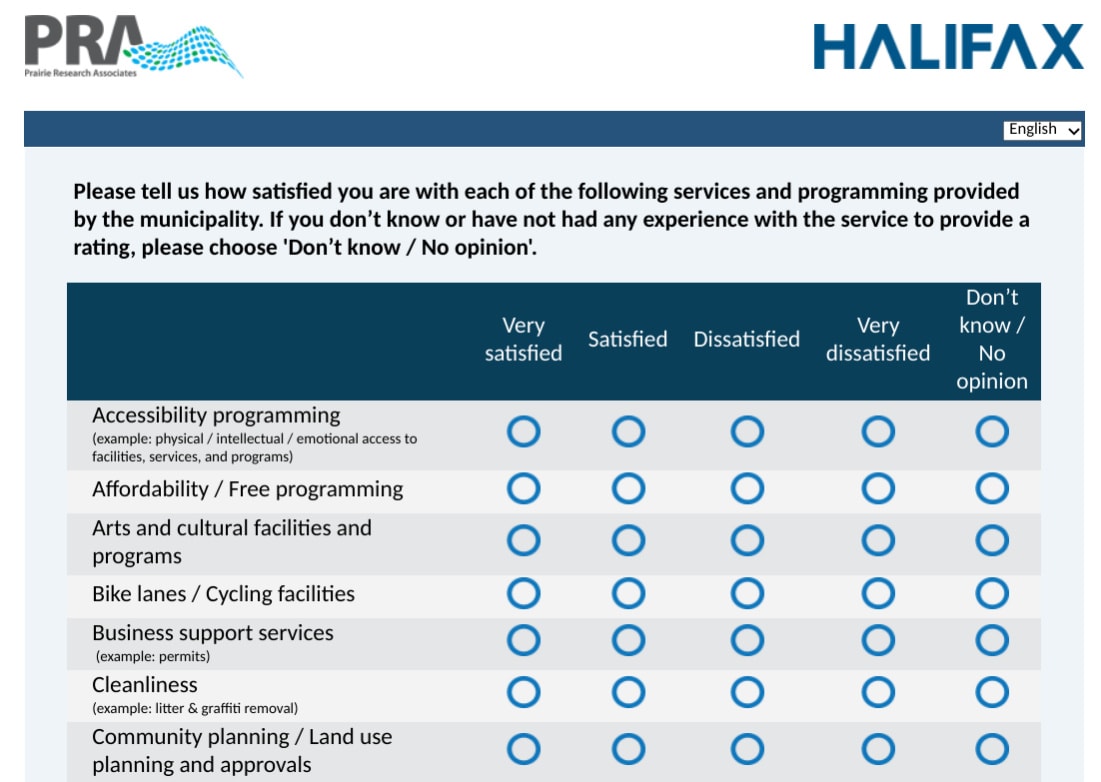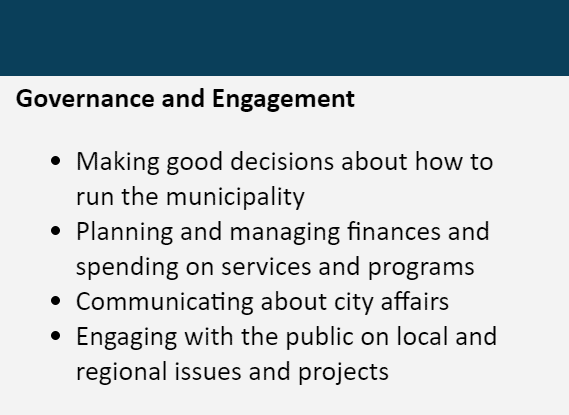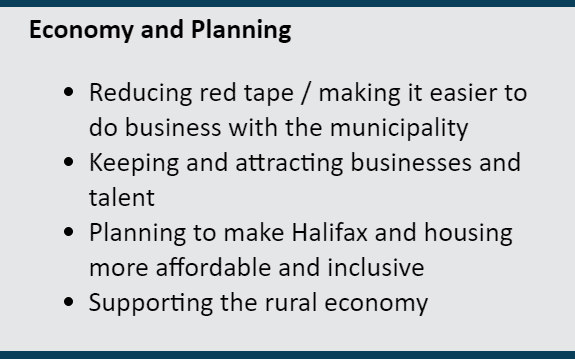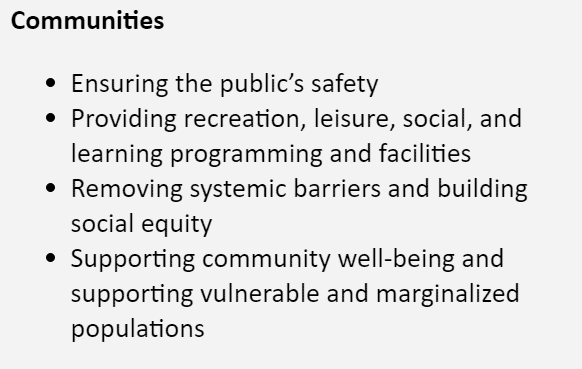
KJIPUKTUK (Halifax) – Earlier this month the City of Halifax published an online survey to “understand where you would like to see investments into municipal programs and services”.
At first glance that seems a great idea, but a closer look reveals some worrisome issues with how the survey was designed.

There’s a lot of vague jargon in this survey and that will mess up any data the city gets out of it.

What do property taxes have to do with understanding the public’s views on municipal services? Are our politicians prioritizing people who pay property taxes over people who can’t afford the costs of owning their own home? Are landlords’ opinions more important than those held by tenants?

This same bias continues, in this case mixing citizen and business demographics, and turning the question into an all or nothing, asking if we think we should lower taxes for both groups and giving us no option to differentiate.

This begs my second question, does Halifax council think working class people are the ones that should bear the brunt of funding our services? We have had politicians on the national level pushing to close tax loopholes for the mega-rich in Canada, why don’t councillors help pressure the province to stand behind that? Certain grocery chains and oil companies in our province should pay their fair share of the taxes.
See also: No-one is happy with the property tax


My next question is, who wrote this survey?
Why, yes, I think it’s a priority to be “Making good discussions about how to run the municipality.” I didn’t think you needed to ask me that.

And then things get strange…
While asking us about how important we see their six strategic themes we get the category of economy and planning. This theme combines “reducing red tape…” and “planning to make Halifax and housing more affordable and inclusive”.
The affordability of rental units in Halifax is a consequence of a lack of red tape. After all, regulating AirBNBs and rent control are red tape of a sort.

“Ensuring public safety” could mean one of a hundred things, and in the current political climate I’m concerned about what that could be used to say.

And of course they have to combine citizens and businesses again. I’m not a business, I’m a human being struggling to stay off the streets.

The survey assumes it’s ok to place the burden of paying for our services on the poor and working class by asking us if we want to pay more taxes, and what services are we willing to sacrifice. (I suggested reducing police services, thank you).
Our councillors need to do better than this, they need to stand up for those who have roots in this city, for those who are finding it harder and harder to afford living in this city. We are the lifeblood of this city and this survey is set up – intentionally or not – to ignore us.
Community organizing has shown the path to really inform governments of our needs. From Black Lives Matter to the climate strike, we’ve seen people getting their message out loud and clear.
I don’t recommend filling out this survey, I do recommend getting to know your neighbours and local activists. Email your councillor whenever you want to, they get paid to represent you. Real democracy happens from the bottom up.
Follow Mila McKay on Twitter
With a special thanks to our generous donors who make publication of the Nova Scotia Advocate possible.
Subscribe to the Nova Scotia Advocate weekly digest and never miss an article again. It’s free!




This was a very poorly developed survey, with built-in bias. I’ve also asked why HRM is employing an Ottawa firm for their surveys, when there are plenty of local qualified firms. It seems especially perplexing when we are being encouraged to “shop local” to stimulate the NS economy in times of COVID-19. Sadly, no one seems to care, as all I’ve received in response to my question is silence.